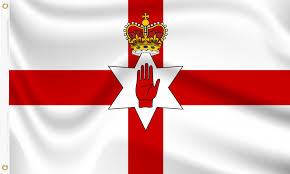Grammar included: “Received Pronunciation”
More FREE grammar videos @TheTravellingEnglishTeacher
Sign up to Hyperwrite AI its very useful: CLICK HERE
New Vocabulary Section
SECTION ONE
Phrasal Verbs: TRAVELLING BY MOTORCYCLE
Here are 10 phrasal verbs related to motorcycle adventure traveling, along with their meanings and sample sentences:
1. Set off: Meaning – to start a journey. Sample sentence: We set off on our motorcycle adventure early in the morning.
2. Gear up: Meaning – to prepare for a trip by wearing appropriate clothing and equipment. Sample sentence: It’s important to gear up before embarking on a motorcycle adventure to ensure safety.
3. Pull over: Meaning – to stop by the side of the road. Sample sentence: We decided to pull over and admire the scenic view during our motorcycle adventure.
4. Ride through: Meaning – to continue riding without stopping. Sample sentence: We rode through the countryside, enjoying the breathtaking landscapes on our motorcycle adventure.
5. Break down: Meaning – for a vehicle to stop working suddenly. Sample sentence: Unfortunately, our motorcycle broke down in the middle of our adventure, causing a delay.
6. Check in: Meaning – to arrive and register at a place. Sample sentence: We checked in at a cozy motel for the night during our motorcycle adventure.
7. Settle down: Meaning – to find a place to rest or stay. Sample sentence: As the sun began to set, we found a campground to settle down for the night during our motorcycle adventure.
8. Ride out: Meaning – to endure a difficult situation. Sample sentence: Despite the rain, we decided to ride out the storm during our motorcycle adventure.
9. Explore around: Meaning – to discover and wander in the surrounding areas. Sample sentence: We took some time to explore around the small towns during our motorcycle adventure.
10. Wind down: Meaning – to relax and unwind after a long day of riding. Sample sentence: After a thrilling day of motorcycle adventure, we found a local pub to wind down and share stories.
Remember that during the lesson we are continuing our RP practice to be able to improve our pronunciation and diction.
SECTION TWO: READING (Concentrate on your pronunciation of the ‘ed’ sounds. You will find the ‘ed’ lesson at the end of this English lesson.
Northern Ireland: A Must-Visit Destination
Are you craving an unforgettable adventure? Look no further than Northern Ireland! Situated in the northeastern part of the island of Ireland, this stunning location is bursting with natural beauty, fascinating history, and warm hospitality.
Upon arriving in Northern Ireland, you will be greeted by breathtaking landscapes that will leave you speechless. Imagine hiking through the iconic Mourne Mountains or strolling along the stunning Causeway Coast. These experiences will transport you to a world where nature’s wonders are abundant.
One of the highlights of your trip can be exploring the enchanting Giant’s Causeway. This UNESCO World Heritage Site boasts thousands of interlocking basalt columns, formed centuries ago by volcanic eruptions. You will be captivated by the majestic beauty of this unique geological phenomenon.
Delve into Northern Ireland’s rich history by visiting the historic city of Derry. Walk along the medieval city walls and step back in time as you explore its well-preserved architecture. The people of Derry have warmly welcomed travelers for generations, making it an ideal place to immerse yourself in local culture.
A trip to Northern Ireland wouldn’t be complete without indulging in its culinary delights. Enjoy a traditional Irish stew at a cozy countryside pub or savour freshly caught seafood along the picturesque coast. Each bite will transport you to a world of flavours that will leave your taste buds craving for more.
As the sun sets, make sure to visit the vibrant city of Belfast. Wander through the bustling streets and soak up the electric atmosphere. Immerse yourself in the local music scene, where talented musicians will serenade you with soulful melodies.
Overall, Northern Ireland offers a mesmerizing blend of natural wonders, rich history, and unforgettable experiences. Whether you are an adventure seeker, a history enthusiast, or a food lover, this destination has something for everyone. So pack your bags, embrace the past, and embark on a journey that will create lifelong memories.
SECTION THREE
Wales boasts an array of fascinating destinations steeped in history, culture, and natural beauty. Here’s a short description of the ten most intriguing places to visit: Watch each short movie clip and then formulate three questions to ask your teacher. (ADVANCED STUDENTS>>) Each question must contain one example of a perfect tense when asked.
HERE ARE THE CATAGORIES:
-
-
-
-
-
-
-
-
- One vocabulary question about a word that is new for you.
- One question about the history of the place you are learning about.
- One question about something the commentator said that you didn’t understand.
-
-
-
-
-
-
-
Video One
SECTION FOUR Advanced grammar)
Defining and non-defining relative clauses are types of clauses that describe nouns in more detail.
A defining relative clause (also known as a restrictive relative clause) provides essential information about the noun it modifies. It is necessary to understand exactly which person or thing we are talking about. Without this clause, the sentence’s meaning would be incomplete or significantly altered. In written English, it does not have commas.
For example:
– The book that I bought yesterday is fascinating.
Here, “that I bought yesterday” is a defining relative clause pointing out which book is being described.
A non-defining relative clause (also known as a non-restrictive or parenthetical clause) provides extra information that can be left out without changing the meaning of the sentence. It is not essential to identify the noun being described, and in written English, it’s typically set off by commas.
For example:
– My brother, who lives in New York, is visiting me next week.
Here, “who lives in New York” is a non-defining relative clause giving additional information about “my brother.” Whether he lives in New York or not doesn’t change the fact that he’s visiting next week – it’s just extra information.
When you write sentences, consider whether the information provided by a relative clause is vital to the point you’re making. Use defining clauses without commas when it is and use non-defining clauses with commas when the info adds something supplementary. Remember that non-defining clauses cannot be used with pronouns “that” or “whose,” and they are more common in written English than spoken English.
SECTION FIVE
Homework Section
Video Two
Now formulate your three questions.
Video Three
Now formulate your three questions
SECTION SIX
Interesting words or expressions in English related to Northern Ireland.
1. The Emerald Isle – Meaning: A poetic nickname for Ireland, known for its lush green landscapes. Example sentence: “I can’t wait to explore the beauty of the Emerald Isle in Northern Ireland.”
2. An Ulster Fry – Meaning: A traditional Northern Irish breakfast consisting of bacon, sausage, eggs, and soda bread. Example sentence: “I highly recommend trying the Ulster Fry while visiting Northern Ireland.”
3. The Giant’s Causeway – Meaning: A UNESCO World Heritage Site in Northern Ireland, renowned for its unique rock formations. Example sentence: “Don’t miss the opportunity to see the spectacular Giant’s Causeway in Northern Ireland.”
4. A Black Taxi Tour – Meaning: A guided tour around Belfast in black taxis, where you can learn about the city’s history and political murals. Example sentence: “Taking a Black Taxi Tour is a fantastic way to discover Belfast’s rich history.”
5. Game of Thrones Filming Locations – Meaning: Places in Northern Ireland where the TV series Game of Thrones was filmed. Example sentence: “Explore the stunning Game of Thrones filming locations in Northern Ireland and feel like a part of the show.”
6. The Bushmills Distillery – Meaning: The oldest licensed whiskey distillery in the world, located in County Antrim, Northern Ireland. Example sentence: “Take a tour of Bushmills Distillery and indulge in the taste of authentic Irish whiskey.”
7. The Titanic Belfast – Meaning: A museum dedicated to the history of the RMS Titanic, located in Belfast. Example sentence: “Visiting Titanic Belfast is a must for anyone interested in the tragic history of the Titanic.”
8. The Carrick-a-Rede Rope Bridge – Meaning: A famous rope bridge connecting the mainland to Carrick-a-Rede Island, providing breathtaking views of the Northern Irish coastline. Example sentence: “Crossing the Carrick-a-Rede Rope Bridge offers an exhilarating experience with stunning coastal views.”
9. The Mourne Mountains – Meaning: A mountain range in County Down, offering picturesque hiking trails and panoramic views. Example sentence: “Embark on a challenging hike through the majestic Mourne Mountains and be rewarded with breathtaking vistas.”
10. The St. Patrick’s Day Parade – Meaning: A lively parade held annually on St. Patrick’s Day (March 17th) in various cities across Northern Ireland, celebrating Irish culture. Example sentence: “Join the vibrant St. Patrick’s Day Parade in Northern Ireland and immerse yourself in Irish festivities.”
SECTION SEVEN
How to pronounce the ‘ed’ sounds in regular verbs.
‘ED’ practice text
In this text remember that we are practicing our RP but at the same time we are going to practice how to pronounce the ‘ed’ in regular verbs. Here is an explanation.
In English, the pronunciation of the past tense suffix “-ed” varies and is determined by the final sound of the root verb:
1. /t/ Sound: We use this sound when the root verb ends in voiceless consonants (except for /t/), such as /p/, /k/, /s/, /ʃ/ (sh), /ʧ/ (ch), and /f/. For example:
– “walk” becomes “walked” and is pronounced as /wa: kt/
– “laugh” becomes “laughed” and is pronounced as /laugh: ft/
2. /d/ Sound: We use this sound with root verbs ending in voiced sounds, which include all vowel sounds and voiced consonants (except for /d/), such as /b/, /g/, /v/, /z/, etc. For example:
– “call” becomes “called” and is pronounced as /ca lld/
– “rob” becomes “robbed” and is pronounced as /rob bd/
3. /ɪd/ or just /d/ Sound: We use this sound distinctly when the root verb ends in either a /t/ or a /d/. This additional syllable makes it easier to pronounce. For example:
– “want” becomes “wanted” and is pronounced as /ˈwant: id/
– “need” becomes “needed” and is pronounced as /ˈneed: id/
STEVE’S NEW BOOK RELEASED January 2024: CLICK THE LINK BELOW

